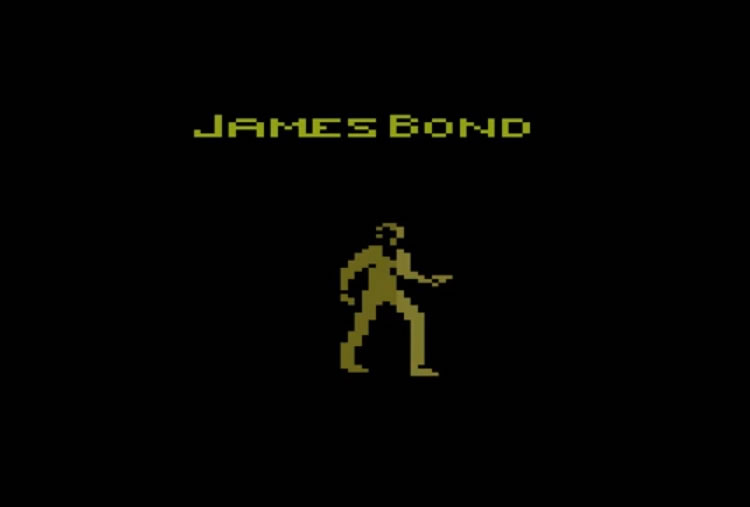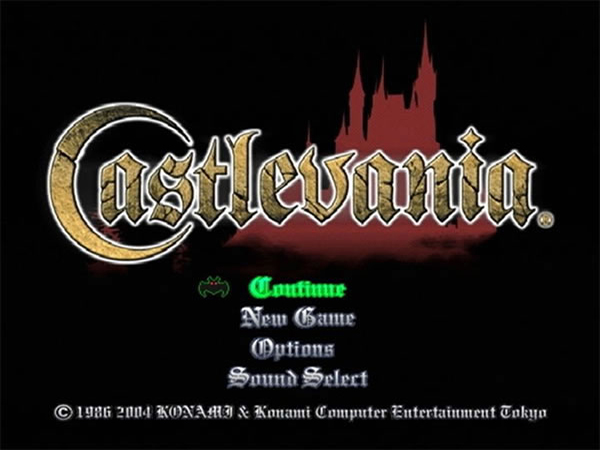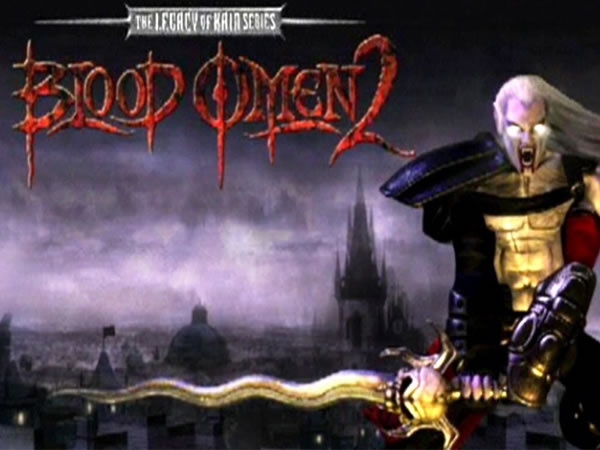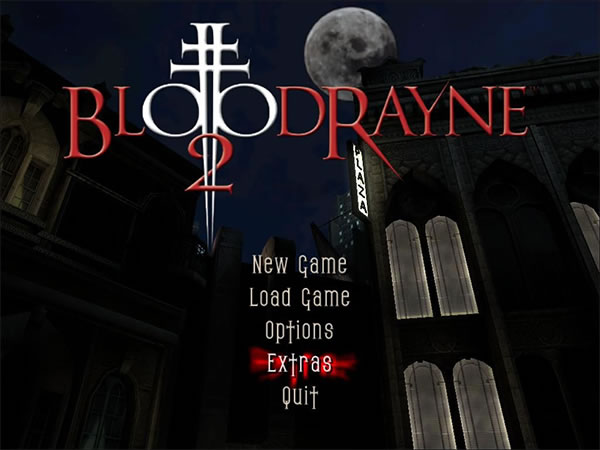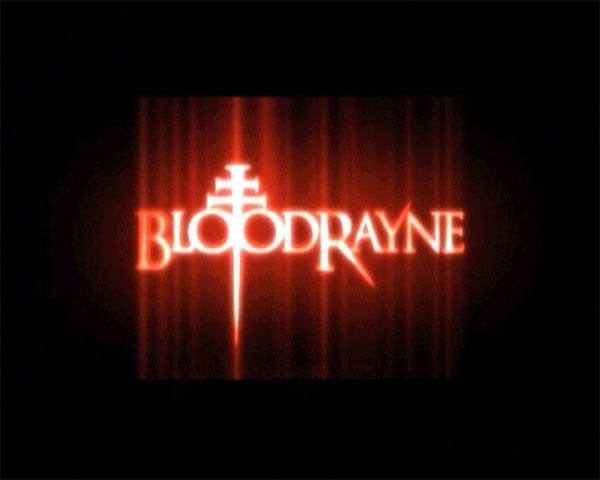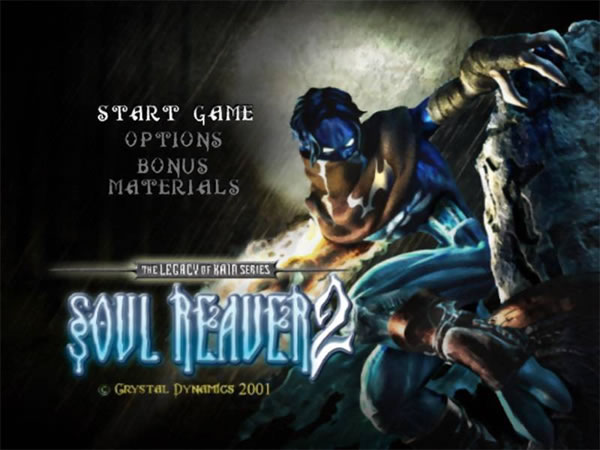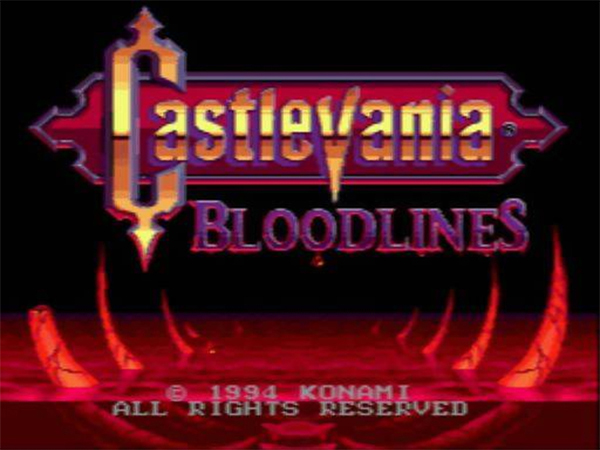- CLASSIC MAGAZINES
- REVIEW CREW
A show recapping what critics thought back
when classic games first came out! - NEXT GENERATION'S BEST & WORST
From the worst 1-star reviews to the best
5-stars can offer, this is Next Generation! - NINTENDO POWER (ARCHIVE)
Experience a variety of shows looking at the
often baffling history of Nintendo Power! - MAGAZINE RETROSPECTIVE
We're looking at the absolutely true history of
some of the most iconic game magazines ever! - SUPER PLAY'S TOP 600
The longest and most ambitious Super NES
countdown on the internet! - THEY SAID WHAT?
Debunking predictions and gossip found
in classic video game magazines! - NEXT GENERATION UNCOVERED
Cyril is back in this spin-off series, featuring the
cover critic review the art of Next Generation! - HARDCORE GAMER MAGAZING (PDF ISSUES)
Download all 36 issues of Hardcore Gamer
Magazine and relive the fun in PDF form!
- REVIEW CREW
- ELECTRONIC GAMING MONTHLY
- ELECTRONIC GAMING MONTHLY RANKS
From Mario to Sonic to Street Fighter, EGM
ranks classic game franchises and consoles! - ELECTRONIC GAMING MONTHLY BEST & WORST
Counting down EGM’s best and worst reviews
going year by year, from 1989 – 2009! - ELECTRONIC GAMING BEST & WORST AWARDS
11-part video series chronicling the ups and
downs of EGM’s Best & Worst Awards!
- ELECTRONIC GAMING MONTHLY RANKS
- GAME HISTORY
- GAME OVER: STORY BREAKDOWNS
Long-running series breaking down game
stories and analyzing their endings! - A BRIEF HISTORY OF GAMING w/ [NAME HERE]
Real history presented in a fun and pithy
format from a variety of game historians! - THE BLACK SHEEP
A series looking back at the black sheep
entries in popular game franchises! - INSTANT EXPERT
Everything you could possibly want to know
about a wide variety of gaming topics! - FREEZE FRAME
When something familiar happens in the games
industry, we're there to take a picture! - I'VE GOT YOUR NUMBER
Learn real video game history through a series
of number-themed episodes, starting at zero! - GREAT MOMENTS IN BAD ACTING
A joyous celebration of some of gaming's
absolute worst voice acting!
- GAME OVER: STORY BREAKDOWNS
- POPULAR SHOWS
- DG NEWS w/ LORNE RISELEY
Newsman Lorne Riseley hosts a regular
series looking at the hottest gaming news! - REVIEW REWIND
Cyril replays a game he reviewed 10+ years
ago to see if he got it right or wrong! - ON-RUNNING FEUDS
Defunct Games' longest-running show, with
editorials, observations and other fun oddities! - DEFUNCT GAMES QUIZ (ARCHIVE)
From online quizzes to game shows, we're
putting your video game knowledge to the test!- QUIZ: ONLINE PASS
Take a weekly quiz to see how well you know
the news and current gaming events! - QUIZ: KNOW THE GAME
One-on-one quiz show where contestants
find out if they actually know classic games! - QUIZ: THE LEADERBOARD
Can you guess the game based on the classic
review? Find out with The Leaderboard!
- QUIZ: ONLINE PASS
- DEFUNCT GAMES VS.
Cyril and the Defunct Games staff isn't afraid
to choose their favorite games and more! - CYRIL READS WORLDS OF POWER
Defunct Games recreates classic game
novelizations through the audio book format!
- DG NEWS w/ LORNE RISELEY
- COMEDY
- GAME EXPECTANCY
How long will your favorite hero live? We crunch
the numbers in this series about dying! - VIDEO GAME ADVICE
Famous game characters answer real personal
advice questions with a humorous slant! - FAKE GAMES: GUERILLA SCRAPBOOK
A long-running series about fake games and
the people who love them (covers included)! - WORST GAME EVER
A contest that attempts to create the worst
video game ever made, complete with covers! - LEVEL 1 STORIES
Literature based on the first stages of some
of your favorite classic video games! - THE COVER CRITIC
One of Defunct Games' earliest shows, Cover
Critic digs up some of the worst box art ever! - COMMERCIAL BREAK
Take a trip through some of the best and
worst video game advertisements of all time! - COMIC BOOK MODS
You've never seen comics like this before.
A curious mix of rewritten video game comics!
- GAME EXPECTANCY
- SERIES ARCHIVE
- NINTENDO SWITCH ONLINE ARCHIVE
A regularly-updated list of every Nintendo
Switch Online release, plus links to review! - PLAYSTATION PLUS CLASSIC ARCHIVE
A comprehensive list of every PlayStation
Plus classic release, including links! - RETRO-BIT PUBLISHING ARCHIVE
A regularly-updated list of every Retro-Bit
game released! - REVIEW MARATHONS w/ ADAM WALLACE
Join critic Adam Wallace as he takes us on a
classic review marathon with different themes!- DEFUNCT GAMES GOLF CLUB
Adam Wallace takes to the links to slice his way
through 72 classic golf game reviews! - 007 IN PIXELS
Adam Wallace takes on the world's greatest spy
as he reviews 15 weeks of James Bond games! - A SALUTE TO VAMPIRES
Adam Wallace is sinking his teeth into a series
covering Castlevania, BloodRayne and more! - CAPCOM'S CURSE
Adam Wallace is celebrating 13 days of Halloween
with a line-up of Capcom's scariest games! - THE FALL OF SUPERMAN
Adam Wallace is a man of steel for playing
some of the absolute worst Superman games! - THE 31 GAMES OF HALLOWEEN
Adam Wallace spends every day of October afraid
as he reviews some of the scariest games ever! - 12 WEEKS OF STAR TREK
Adam Wallace boldly goes where no critic has
gone before in this Star Trek marathon!
- DEFUNCT GAMES GOLF CLUB
- DAYS OF CHRISTMAS (ARCHIVE)
Annual holiday series with themed-episodes
that date all the way back to 2001!- 2015: 30 Ridiculous Retro Rumors
- 2014: 29 Magazines of Christmas
- 2013: 29 Questionable Power-Ups of Christmas
- 2012: 34 Theme Songs of Christmas
- 2011: 32 Game Endings of Christmas
- 2010: 31 Bonus Levels of Christmas
- 2009: 30 Genres of Christmas
- 2008: 29 Controls of Christmas
- 2007: 34 Cliches of Christmas
- 2006: 33 Consoles of Christmas
- 2005: 32 Articles of Christmas
- 2004: 31 Websites of Christmas
- 2003: 29 Issues of Christmas
- 2002: 28 Years of Christmas
- 2001: 33 Days of Christmas
- NINTENDO SWITCH ONLINE ARCHIVE
- REVIEW ARCHIVE
- FULL ARCHIVE
Voyeur
With the philandering of Gary Hart, Bill Clinton, and Bob Packwood fresh in the national consciousness in 1993, the Philips Company helped fuel the public's cynicism toward civil servants by releasing Voyeur, an interactive "political thriller" in which you try to derail the presidential campaign of a man with a seedy past and Machiavellian ethics. Former war hero, astronaut, and entrepreneur, Reed Hawke (played by Robert Culp), invites his family for a retreat at his home a few days prior to formally announcing his presidential bid. Some of his relatives, however, do not want Hawke to succeed for various reasons, and they're willing to put their lives in jeopardy in order to expose his sordid past. Luckily, there are many windows in the manor and the blinds are rarely drawn. With the aid of your video camera, you will need to keep vigilant watch over Hawke's nest and protect your country from electing this scoundrel as its leader.
Like any good mystery, Voyeur creates immediate intrigue. Its opening screen shows a numeric keypad intended to lockout minors from playing it. After entering the encryption code (provided in the instructions manual), you quickly learn why this game comes with a security system; as the credits roll, you witness a woman in lingerie handcuffing a man to a bed - an auspicious start to say the least - and this one moment presages the game's major themes: power, control, and sex.
Whatever your perversion, you'll find it referenced in Voyeur: adultery, incest, bondage, domination, lesbianism, molestation of a minor, and even a lewd appropriation of a common vegetable. Yes, Voyeur has all this without the aid of nudity or any depiction of little girls in sailor costumes. If you want to win, however, you may have to curve your curiosity in order to record high priority scenes with your camera. For example, if you see two women about to make-out in one room (as interesting as that may be), you may want to train your camera elsewhere to find something incriminating to Mr. Hawke.*
As you watch family members shuffle into the house, you learn a little bit about each person's gripe with the candidate. It is very easy to become confused about who is who and how they're related to Hawke, especially when you see things like his younger sister, Margaret, seducing him. You will need to fail the game a few times before learning the intricacies of everyone's background, and while this is a flaw in its design, it gives it a high replay value, especially when you realize that there are at least four different endings.
Watching the same scenes over and over again does become redundant, especially if Robert Culp, its only established actor, isn't in them. Your enjoyment depends of how willing you are to stick with it. Since there is no formal pause or save features, you will need to make a commitment each time you play.
If you overlook the boredom factor and the bad acting, you may appreciate the complexity this game offers. Details change subtly according to four different storylines and it's difficult to tell which version you're playing at first. Red herrings abound, but with some memorization and perhaps some note taking, you will know where and when to point your camera. You just don't want to be late moving your cursor to the window where the murder will take place.
Even if Voyeur isn't a great game, it's still an interesting social artifact, revealing the perceptions and attitudes of American politics in the 1990s. The script never reveals Hawke's party affiliation, but one can easily surmise that he is a Republican. A letter from Ronald Reagan hangs in his office, he doesn't embrace environmentalism as a campaign issue, and he insists on showcasing family values as a way to appeal to his voting base. Another glaring clue to his Republicanism is his support for a missile defense system (MDS), an idea similar to the Reagan's SDI program (dubbed "Star Wars" by opponents) in the 1980s. Hawke's conservatism shouldn't be surprising. The entertainment industry has often painted Republicans as bad guys (see The American President, Bullworth, The Contender, Dave, or most episodes of The West Wing).
Voyeur has left its legacy on the industry. It is a game more known than actually played. It did have something of a cult following, however, and this led to a sequel for the PC a few years later. The original's star, Robert Culp, was apparently not turned off by this acting experience; he has since lent his talents to PC hit, Half-Life 2.
For a full-motion-video title, Voyeur does what it does rather well, but like most FMV games, it demonstrates that films and video games should remain two separate mediums ... at least for now.
*Amazingly, this game was not brought up at the U.S. Senate hearings held in late 1993 exploring "inappropriate content" in video games. One would think that Senators would take greater umbrage with a sex-laden game involving a politician rather than focusing their attention around the relatively benign FMV title, Night Trap, which only showed girls running around a house in flimsy teddies.
Like any good mystery, Voyeur creates immediate intrigue. Its opening screen shows a numeric keypad intended to lockout minors from playing it. After entering the encryption code (provided in the instructions manual), you quickly learn why this game comes with a security system; as the credits roll, you witness a woman in lingerie handcuffing a man to a bed - an auspicious start to say the least - and this one moment presages the game's major themes: power, control, and sex.
Whatever your perversion, you'll find it referenced in Voyeur: adultery, incest, bondage, domination, lesbianism, molestation of a minor, and even a lewd appropriation of a common vegetable. Yes, Voyeur has all this without the aid of nudity or any depiction of little girls in sailor costumes. If you want to win, however, you may have to curve your curiosity in order to record high priority scenes with your camera. For example, if you see two women about to make-out in one room (as interesting as that may be), you may want to train your camera elsewhere to find something incriminating to Mr. Hawke.*
As you watch family members shuffle into the house, you learn a little bit about each person's gripe with the candidate. It is very easy to become confused about who is who and how they're related to Hawke, especially when you see things like his younger sister, Margaret, seducing him. You will need to fail the game a few times before learning the intricacies of everyone's background, and while this is a flaw in its design, it gives it a high replay value, especially when you realize that there are at least four different endings.
Watching the same scenes over and over again does become redundant, especially if Robert Culp, its only established actor, isn't in them. Your enjoyment depends of how willing you are to stick with it. Since there is no formal pause or save features, you will need to make a commitment each time you play.
If you overlook the boredom factor and the bad acting, you may appreciate the complexity this game offers. Details change subtly according to four different storylines and it's difficult to tell which version you're playing at first. Red herrings abound, but with some memorization and perhaps some note taking, you will know where and when to point your camera. You just don't want to be late moving your cursor to the window where the murder will take place.
Even if Voyeur isn't a great game, it's still an interesting social artifact, revealing the perceptions and attitudes of American politics in the 1990s. The script never reveals Hawke's party affiliation, but one can easily surmise that he is a Republican. A letter from Ronald Reagan hangs in his office, he doesn't embrace environmentalism as a campaign issue, and he insists on showcasing family values as a way to appeal to his voting base. Another glaring clue to his Republicanism is his support for a missile defense system (MDS), an idea similar to the Reagan's SDI program (dubbed "Star Wars" by opponents) in the 1980s. Hawke's conservatism shouldn't be surprising. The entertainment industry has often painted Republicans as bad guys (see The American President, Bullworth, The Contender, Dave, or most episodes of The West Wing).
Voyeur has left its legacy on the industry. It is a game more known than actually played. It did have something of a cult following, however, and this led to a sequel for the PC a few years later. The original's star, Robert Culp, was apparently not turned off by this acting experience; he has since lent his talents to PC hit, Half-Life 2.
For a full-motion-video title, Voyeur does what it does rather well, but like most FMV games, it demonstrates that films and video games should remain two separate mediums ... at least for now.
*Amazingly, this game was not brought up at the U.S. Senate hearings held in late 1993 exploring "inappropriate content" in video games. One would think that Senators would take greater umbrage with a sex-laden game involving a politician rather than focusing their attention around the relatively benign FMV title, Night Trap, which only showed girls running around a house in flimsy teddies.
HOME |
CONTACT |
NOW HIRING |
WHAT IS DEFUNCT GAMES? |
NINTENDO SWITCH ONLINE |
RETRO-BIT PUBLISHING
Retro-Bit |
Switch Planet |
The Halcyon Show |
Same Name, Different Game |
Dragnix |
Press the Buttons
Game Zone Online | Hardcore Gamer | The Dreamcast Junkyard | Video Game Blogger
Dr Strife | Games For Lunch | Mondo Cool Cast | Boxed Pixels | Sega CD Universe | Gaming Trend
Game Zone Online | Hardcore Gamer | The Dreamcast Junkyard | Video Game Blogger
Dr Strife | Games For Lunch | Mondo Cool Cast | Boxed Pixels | Sega CD Universe | Gaming Trend
Copyright © 2001-2025 Defunct Games
All rights reserved. All trademarks are properties of their respective owners.
All rights reserved. All trademarks are properties of their respective owners.

















